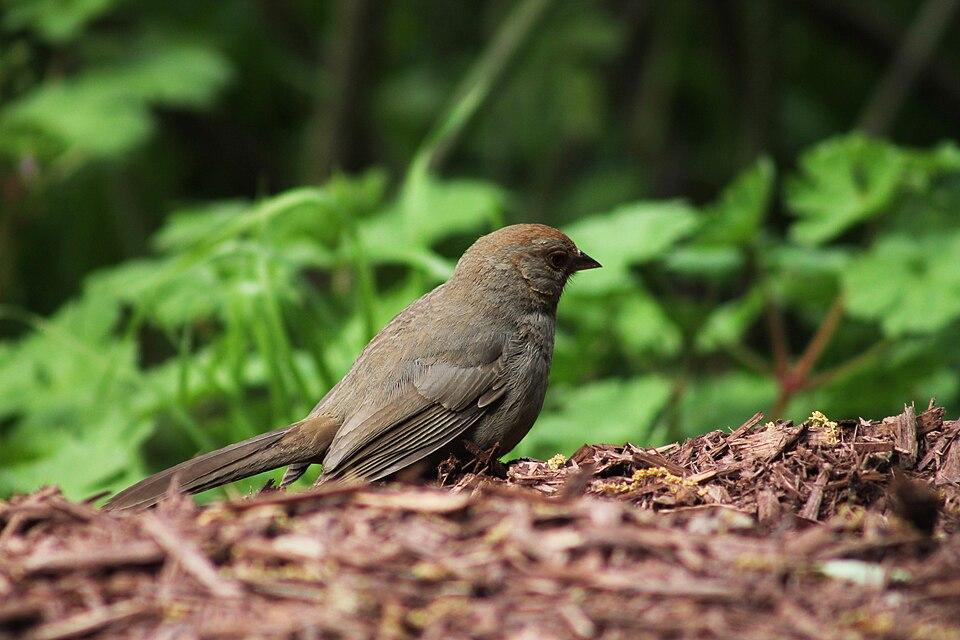Wildfires can leave utter devastation in their wake. But, when it comes to nature's recovery, it's often the birds that make the first notable impact.
 photo credit: Elizabeth Saxton Henry, CC BY-SA 4.0, via Wikimedia Commons
photo credit: Elizabeth Saxton Henry, CC BY-SA 4.0, via Wikimedia Commons A California towhee perched on the ground.
This year's Wildfire and Earthquake Safety Expo was all about keeping your family, property, and animals safe.
So what about wildlife recovery after a wildfire? That is where Kimberly Lemons, a volunteer with the Bird Rescue Center of Sonoma County, chimed in.
It's often apex predators like coyotes, bears, and foxes get displaced by fire, but she said, they aren't the first to re-populate a charred area.
"It's probably going to be your insects, your bugs," she said.
Next to repopulate will be, "birds that can fly in, to take advantage of the insects and fly back to a spot where they can get food and water," Lemons said.
Then, Lemons said ground-dwelling birds move back in.
"You get your birds that live on the ground, towhees, quail," Lemons said. "They do all their scratching on the ground and they're mixing things up. They're adding nutrients to the soil with their droppings. They're bringing seed in from other areas that didn't burn."
With the smaller birds, come the larger predatory birds, and from there, the food chain reestablishes, as wildlife slowly returns to burnt areas.
While wildfires can devastate landscapes and displace certain species, they can also bring renewal to the burned areas.
"During the fires of 2017, we even got a bird that had never lived here: the Lazuli Bunting," Lemons said.
She said the Lazuli Bunting is now one of our common bird species in Sonoma County.
Keeping those local bird populations healthy is something everyone can help with.
"If you have a bird feeder, or if you have a bird bath, you need to clean it out with bleach probably once a week," Lemons said.
Birds can carry diseases which don't necessarily kill them, Lemons said, but the avian flu, which is 100% fatal to the birds, remains present in wild bird populations.
There's also another household danger birds face.
"One cat in the neighborhood can take out an entire population of birds, absolutely," Lemons said.
Cats, Lemons said, are considered an invasive species and will prey upon most ground-dwelling birds, and she suggested, "if you have a cat, maybe keep it inside, or if it's an outdoor cat...put a bell on it," Lemons said.
Since April 2024, experts have confirmed 21 cases of avian flu spreading to domestic cats.

 Live Radio
Live Radio